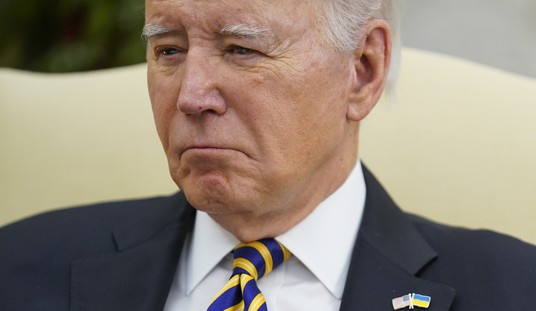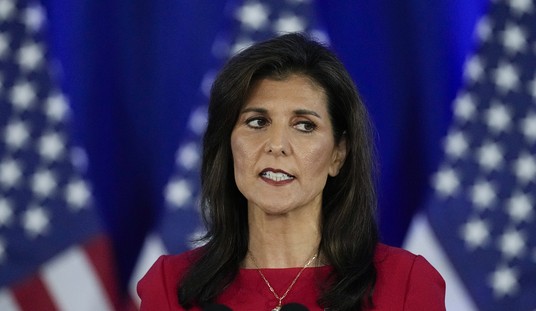The Long War Journal, whose coverage of the war has been superlative, asks for just the facts about Syria in a piece bylined by Bill Roggio and Lisa Lundquist.
When will the proof be produced, and what is it? … Since the site of the Aug. 21 chemical weapons attack is in territory that has been a rebel stronghold for months, is it reasonable for the US to have made this claim? … Is there a possibility that the Aug. 21 attack was an accidental hit — of chemical stocks belonging to either the regime or the rebels. … Why is the US so quickly dismissing the UN investigative effort as too late. … Is there a way to rule out the possibility, given the timing of the Aug. 21 attack, that it could have been perpetrated by rebel groups seeking to draw the US into a military intervention against the Assad regime? … What is the US’s endgame in Syria?
These are fair questions. They are the minimum one should ask before plunging int theo very center of the Middle Eastern vortex. Diving in without even a fixed idea of who wears the black or white hat hardly seems prudent. But whether the questions will be answered is another question. Some members of Congress are asking for a special session precisely to put them to the administration.
WASHINGTON — As President Obama moved closer to taking military action against Syria, some leading members of Congress and foreign policy specialists called Tuesday for more debate of the options and their consequences to hold the Syrian regime accountable for its alleged use of chemical weapons.
A Republican member of the House Armed Services Committee who represents the largest concentration of active-duty military personnel in the nation was preparing a letter to Obama requesting a special session of Congress, currently in recess until Sept. 9, to debate the use of military force in Syria.
“My deep concern here is that President Obama and some of his predecessors have interpreted their authority more broadly than is called for in our Constitution,” Representative Scott Rigell of Virginia, whose district includes Naval Station Norfolk, said in an interview. “We have had a propensity to engage military forces sooner than we have to.”
As of Tuesday evening, Rigell had enlisted 35 other members, including several Democrats, to sign on to his letter to Obama, he said.
After all, Congress has the actual constitutional power — indeed the duty — to inquire into these things. But the official die appears to be cast. The ship has sailed and the select committeemen are all stranded on the pier, waving their tickets. Ambrose Evans-Pritchard of the Telegraph quotes a regional newspaper which says that Prince Bandar, head of Saudi intelligence, has made Russia an offer to fix gas prices if it agrees to drop its support for Syria. Bandar allegedly said:
“Let us examine how to put together a unified Russian-Saudi strategy on the subject of oil. The aim is to agree on the price of oil and production quantities that keep the price stable in global oil markets,” he said at the four-hour meeting with Mr Putin. They met at Mr Putin’s dacha outside Moscow three weeks ago.
“We understand Russia’s great interest in the oil and gas in the Mediterranean from Israel to Cyprus. And we understand the importance of the Russian gas pipeline to Europe. We are not interested in competing with that. We can cooperate in this area,” he said, purporting to speak with the full backing of the US.
The talks appear to offer an alliance between the OPEC cartel and Russia, which together produce over 40m barrels a day of oil, 45pc of global output. Such a move would alter the strategic landscape.
The details of the talks were first leaked to the Russian press. A more detailed version has since appeared in the Lebanese newspaper As-Safir, which has Hezbollah links and is hostile to the Saudis.
As-Safir said Prince Bandar pledged to safeguard Russia’s naval base in Syria if the Assad regime is toppled, but he also hinted at Chechen terrorist attacks on Russia’s Winter Olympics in Sochi if there is no accord. “I can give you a guarantee to protect the Winter Olympics next year. The Chechen groups that threaten the security of the games are controlled by us,” he allegedly said.
Is the report real? Or is the Bandar offer, as the Telegraph suggests, possibly Iranian disinformation? Well, who knows? But the whole thing is playing out a little too smoothly, and has the air of a script. And for that very reason it is perhaps well to remember Anton Chekhov’s dictum about dramatic props. A gun that comes onstage in the first act must absolutely be fired before the third act ends.
Assad’s chems have been on the table for a while, lying beside the teapot and the cup. When they will they be poured into the brew? Or have they already?
We are now coming up to the denouement of the script. Yet as in all suspenseful plays, the essential question is still unanswered: how does the story end? Which character is led away in handcuffs before the final curtain? And does the hero get the girl? What was the drama all about?
Sometimes these questions are left unresolved or we are left to puzzle them out ourselves. But that we should take an interest is only natural, for we are in truth not onlookers in some make-believe theater, but real minor personages on the actual stage of history where the tale — a real tale with an unknown ending — is unfolding. The questions for us are actual. Do we survive? I mean really survive. Or are we led away in handcuffs or in a coffin before the end? The consolation is that the conclusion partly depends on us; it isn’t written yet, and we may have a line to speak before the finish.
For it’s like in the great stories, Mr. Frodo. The ones that really mattered. Full of darkness and danger, they were. And sometimes you didn’t want to know the end. Because how could the end be happy? How could the world go back to the way it was when so much bad had happened? … Folk in those stories had lots of chances of turning back, only they didn’t.
And that’s because in plays of this sort it is — you, I, we — the whole inconsequential lot of little people who in the aggregate determine the ending by the sheer outworking of numbers. What ought to give the Bandars, Putins, Obamas and Erdogans of the world pause is we are all, as it were, like Chekhov’s famous gun: all portentous props standing on the stage wondering why we are there. And we will be fired or act our part before the end. Everything that comes on in the first act will have a role to play before the third.
Did you know that you can purchase some of these books and pamphlets by Richard Fernandez and share them with you friends? They will receive a link in their email and it will automatically give them access to a Kindle reader on their smartphone, computer or even as a web-readable document.
The War of the Words for $3.99, Understanding the crisis of the early 21st century in terms of information corruption in the financial, security and political spheres
Rebranding Christianity for $3.99, or why the truth shall make you free
The Three Conjectures at Amazon Kindle for $1.99, reflections on terrorism and the nuclear age
Storming the Castle at Amazon Kindle for $3.99, why government should get small
No Way In at Amazon Kindle $8.95, print $9.99. Fiction. A flight into peril, flashbacks to underground action.
Storm Over the South China Sea $0.99, how China is restarting history in the Pacific
Tip Jar or Subscribe or Unsubscribe









Join the conversation as a VIP Member